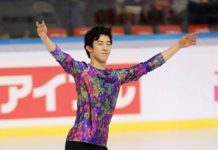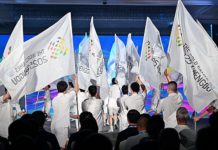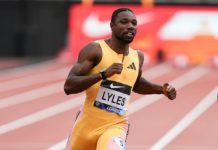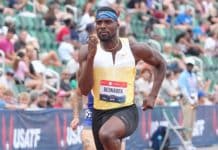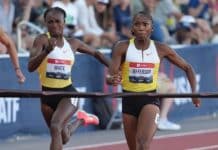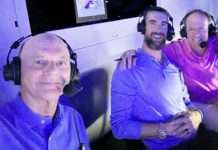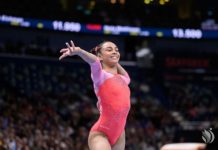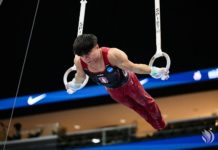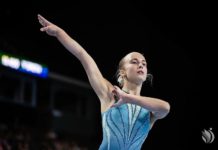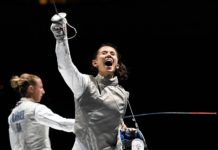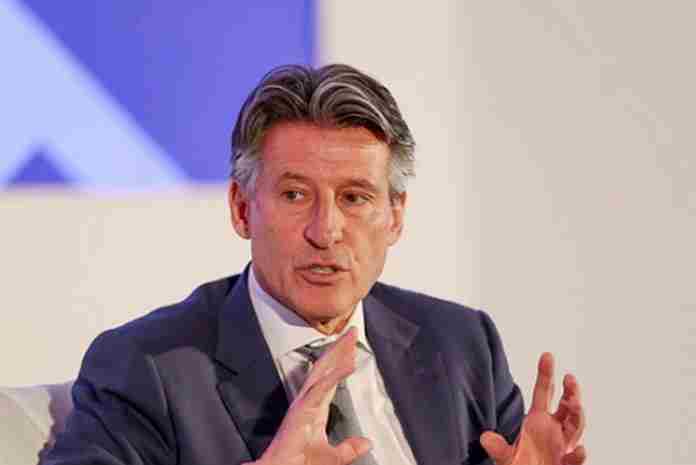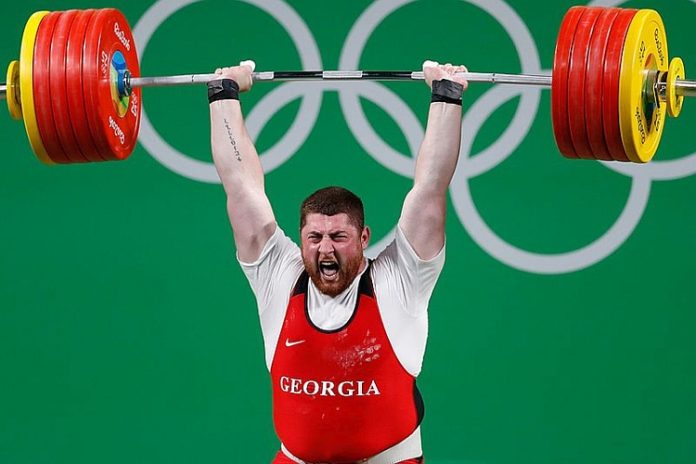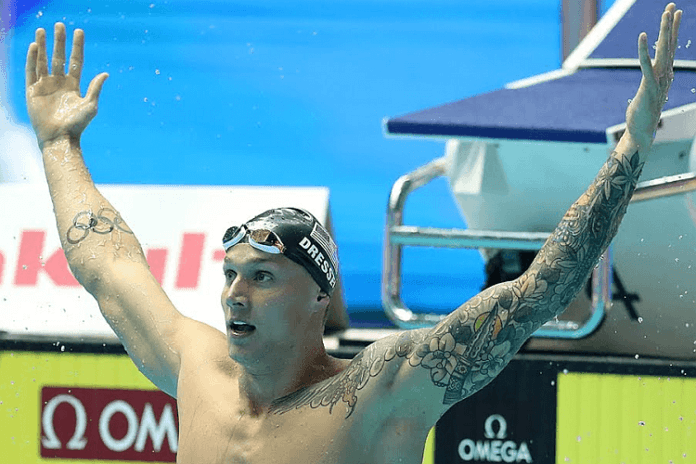(For our Highlights of the weekend’s top competitions, including world records
in weightlifting – 1,085 pounds! – and swimming, click here.)
“Oregon, I’m unashamedly going to tell you is a really important moment for our sport. We’re into the U.S., every sport wants to be there. It is the largest sports market for us, and other sports.
“We need to leave there with what I have described as an ‘indelible footprint.’ And that’s not just about our ability as an organization to have great [communications programs]. Oregon, to me, feels very much like a holistic project: it’s project management, It’s every facet of what we need to do. We need to come together with the [local organizing committee], with USA Track & Field, our own teams internally, just to make sure that we leave with all the fruit.
“And it’s just not about broadening that footprint in the U.S., as important as that is. It’s also the opportunity to create more competition events that will allow there to be more of a two-way street for European and African athletes to be competing in the U.S.
“It feels a bit still that we have the old, sort-of Victorian view that everybody comes to Europe to summer, you know, on the grand tour. I want our sport to be more global in terms of the events that we’re able to offer and create. And the Continental Tour has been a good example of how that is growing and building traction in the U.S.”
That’s World Athletics President Sebastian Coe (GBR), the two-time Olympic 1,500 m champion from 1980 and 1984, speaking to a half-dozen reporters online last Friday about the state of the sport and what’s important for 2022. And the World Athletics Championships coming up next summer at the new Hayward Field in Eugene, Oregon, is high on his list.
He has no illusions about some sort of automated “magic” that the event will bring to the profile, impact and stature of the sport in the U.S.:
● “I’m not going to sit here and tell you this is going to be easy. It isn’t. We’re coming from a fair way behind if we’re being honest.”
● “It’s still that conundrum, isn’t it? The U.S. is still the powerhouse of track & field, consistently been so. … It still poses that challenge that we’ve got athletes that are recognized within the sporting athletic world and more than ever that are beginning to cross over into greater perception outside of track & field. But that tends to be outside of the U.S. I know household names – that we consider in the sport – still walk with relative anonymity in their own home cities.”
● “I actually flew from Tokyo to Los Angeles on a flight with a great number of L.A.-based Olympic medalists and I expected to get off the plane with them in L.A. to be sort of side-stepping the media who would want to be chasing them and catching their reunion on domestic soil. They walked through the airport, you know, unescorted. So, I know we’re coming from a fair distance back and I made the point earlier that I don’t see this being about [World Athletics Communications chief Jackie Brock-Doyle]’s ability and her teams in Comms to be able to dial up the interest any more than it is simply [USA Track & Field] or the LOC. I think this has to be a really joint effort.”
● “It is really vital that we improve the perception of track & field in the U.S., because that will actually help us grow the sport globally. So, I’ve just crafted a message to all of our member federations making sure they understand how serious an opportunity this is for all our federations. This is not just about growing the sport in the U.S., although as important as that is.”
● “It’s a runway as well into [Los Angeles] 2028. So, look, I’m not saying that we’re going to swallow up all that ground in the next six months, but I see this not just as a way of promoting Oregon, I see it as a way of promoting the sport more generally in the U.S. so that we have a growing trajectory for it. …
“We need to really continue to ramp this up, because ‘28 is a very important mile mark for us as well in the sport. So, it’s sequential and incremental, but we do have to make sure that we cover a lot of ground in the next six months to build the perception around these championships.”
In terms of what is being planned, Coe explained, “It’s about social media, it will be about broadening the footprint on traditional media, getting broadcast, getting promotional work done in advance of these championships.”
He was not overly concerned about the finances of the event, saying that the budget is settled and that if all parties involved work together, it should come off as planned.
Beyond the 2022 Worlds, Coe did take some time to extol the coverage of track & field as “the no. 1 Olympic sport” compared with all others at the Tokyo Games last summer. He noted that in data provided to the International Federations by the IOC:
“We had the highest number of broadcast viewing hours in Tokyo, by some distance of any other Olympic sport, some 2.2 million hours. We had the largest number of media articles written, a good chunk of them by you folks on the call today, some 10,000. We had the highest number of shared articles across our social media, which was roughly about 700 million, and that led to over 62 million conversations on social media around athletics.”
He also championed new projects, especially with the European Broadcast Union to produce all-access pieces about the sport in the same style as ESPN’s “The Last Dance” about the sixth title run for the NBA’s Chicago Bulls with Michael Jordan, or Netflix’s “Drive to Survive” about Formula 1 racing.
Asked about the doping history of weightlifting that has led it to the brink of extinction on the Olympic program vis-a-vis the doping problems in track & field, Coe pointed to the differences:
“Yes, we’ve had our doping concerns, but in track & field, we’ve done something about it. We created the Athletics Integrity Unit. The Athletics Integrity Unit forms the basis of our reforms in 2016, the practical implementation of them in 2019. …
“There is a distinct difference in what athletics has done and how other sports have dealt with this issue, and I am unashamedly happy to say that we got onto the front foot, we created a new system that made very much more independent the approach to anti-doping. It removed any vestige of thought that somehow, if you had a big reputation in the sport, or you were a large federation, you could somehow skip past these regulations, and I think that has lent confidence.”
He was also quizzed on the federation’s regulations for women’s competitions, especially for those with “Differences in Sex Development” such as Caster Semenya (RSA), Francine Niyonsaba (BDI) and others. He was resolute:
“It is about fairness and inclusion, it is about protecting female sport and that is very, very important. … The rules and the regulations that we [passed], the measures that we took, were supported by the Court of Arbitration, upheld in the Swiss Federal Court. Their words, not mine: ‘proportionate, necessary and realistic.’
“We’ve always made it clear that the 4, the 8, the 15 and/or the mile were those disciplines, that for our case to be defended in the Court of Arbitration, were those events that were most impacted. We had the evidence, we were comfortable with the science, but we then took the added data and relevance to those events.”
Coe noted that Russia’s reinstatement was coming closer, but will only be completed when “when I and the Council and the Task Force are entirely satisfied that reinstatement does not remotely jeopardize the devoted efforts of the thousands of clean athletes around the globe.”
And he was optimistic that cross country might be considered once again for the program at the 2028 Games in Los Angeles.
Coe was pleased with how World Athletics came out of 2021, especially with the difficulties posed by the Covid pandemic and the challenge of the Tokyo Olympic Games. Recognizing that we are not yet in a post-Covid world, he is optimistic about the future of his sport, especially the opportunities presented by the first-ever outdoor Worlds coming to the U.S. next summer.
But as he underlined, there is a lot of work yet to do.
Rich Perelman
Editor
You can receive our exclusive TSX Report by e-mail by clicking here. You can also refer a friend by clicking here, and can donate here to keep this site going.
For our 743-event International Sports Calendar for 2021 and beyond, by date and by sport, click here!







